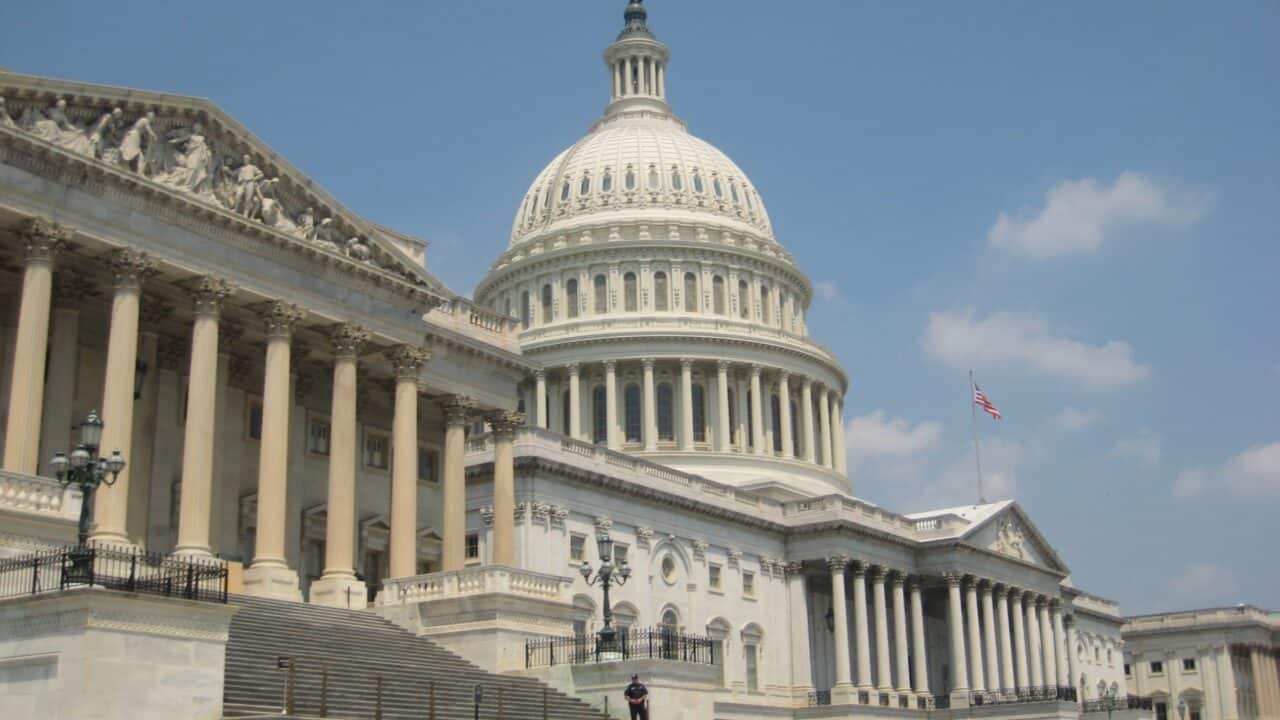 https://d9-wret.s3.us-west-2.amazonaws.com/assets/palladium/production/s3fs-public/styles/medium/public/IMG_0509.JPG?itok=9rkn7g9E >U.S. Capitol by Toni Smith is licensed under Public Domain
https://d9-wret.s3.us-west-2.amazonaws.com/assets/palladium/production/s3fs-public/styles/medium/public/IMG_0509.JPG?itok=9rkn7g9E >U.S. Capitol by Toni Smith is licensed under Public Domain
Since March 10, 2023, three banks failed (Silicon Valley Bank, Signature Bank, and First Republic Bank) due to a mixture of poor risk management, failed regulator supervision, a high concentration of unique depositors, and the Federal Reserve’s (Fed) aggressive increase in interest rates, which have devalued bond portfolios and made venture capital fundraising prohibitively more expensive.
To promote future financial stability, Congress can and should promote deregulatory actions that will loosen liquidity constraints, tamp down on risk-taking, and ultimately protect taxpayers from future bailouts.
Below is a list of six considerations lawmakers should keep in mind moving forward:
- Oppose any increase or expansion of the federal deposit insurance limit
- Increasing the deposit insurance cap for any type of account would exacerbate moral hazard (e.g., more risk-taking), propagate future bank failures, increase assessment fees on banks, and ultimately raise costs on taxpayers. Increasing the deposit insurance cap should be opposed, full stop.
- The reforms in the Federal Deposit Insurance Corporation’s (FDIC) recent report on deposit insurance, including the recommendation for an increased limit for business payment accounts, should be rejected. A survey of 600,000 small businesses found that their median bank balance is $12,100—far below the current $250,000 threshold.
- Reduce regulations on banks, including community banks
- Capital requirements across the board should be reduced. In particular, the community bank leverage ratio, which currently sits at 9 percent, should be reduced. In light of the recent disruptions in the banking sector and deposit outflows, community banks should be relieved of excess regulation.
- Issuance of long-term debt (total loss-absorbing capacity), reimposing interest rate controls (Regulation Q), and expanding other capital requirements on regional banks will only increase bank leverage (making them riskier) and constrain liquidity. Expanding these regulations should be opposed.
- More regulations will also fail to stymie future bank failures. The fulcrum of the bank collapses is the Fed and FDIC’s failure to supervise and escalate concerns with bank behavior.
- Promote expansion of credit through banks and asset managers
- Both nonbanks (e.g., private equity fund advisers) and banks should be allowed to unleash their full potential to inject liquidity into financial markets. This also includes allowing nonbanks to come to the table when the FDIC is looking for potential buyers of banks in receivership. One academic paper found that private equity investors “had a positive role in stabilizing the financial system through their involvement in failed bank resolution” in the wake of the 2008 financial crisis.
- Further deregulate reciprocal deposits
- In 2018, the Economic Growth, Regulatory Relief, and Consumer Protection Act (P.L. 115-174) largely removed reciprocal deposits from the definition of a “brokered deposit” to unleash more bank products that allow more deposits to be insured under the current deposit insurance limit. Currently, reciprocal deposits are considered “non-brokered” if they amount to no more than $5 billion or 20 percent of a bank’s total liabilities, whichever is less. These private sector alternatives protect depositors and avoid exacerbating moral hazard to the same degree as increasing the deposit insurance cap. Allowing banks more leeway to pursue these products could benefit both household and business depositors.
- Promote bank sweep accounts
- Businesses and individuals can take advantage of these private sector alternatives. For example, some community banks and regional banks offer insured cash sweep programs that allow depositors to distribute their cash around to different accounts “to money market deposit accounts at other FDIC-insured financial institutions” to earn higher interest and stay under the insurance limit. A heightened government backstop is not needed because the private sector is already innovating new products to benefit individuals and businesses.
- Mark-to-market accounting for all bank securities
- Simple accounting tweaks, such as marking-to-market a bank’s securities portfolio, can offer transparency to bank shareholders, bondholders, and depositors. Charles Calomiris and Phil Gramm have proposed this idea.

